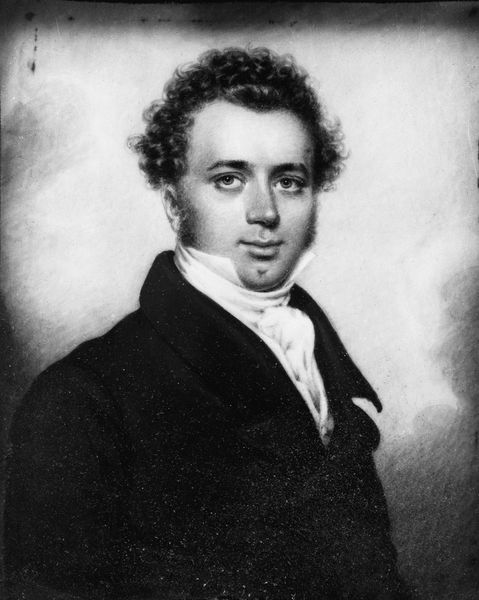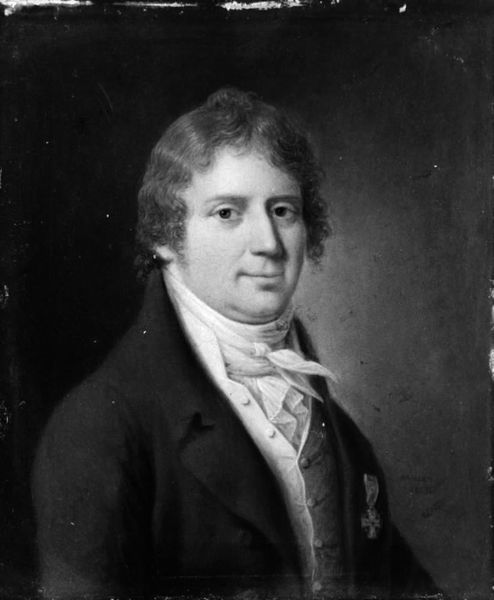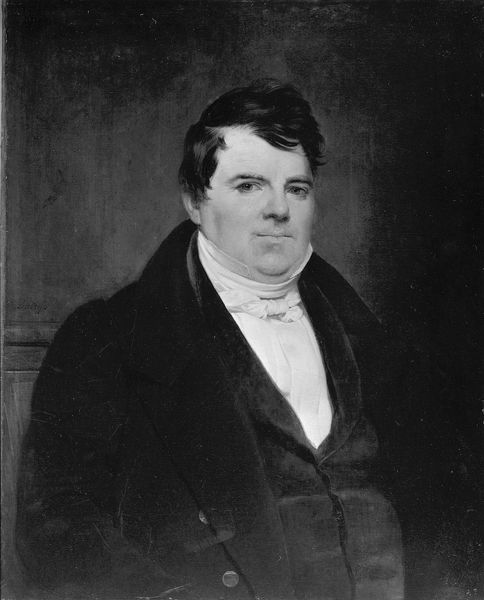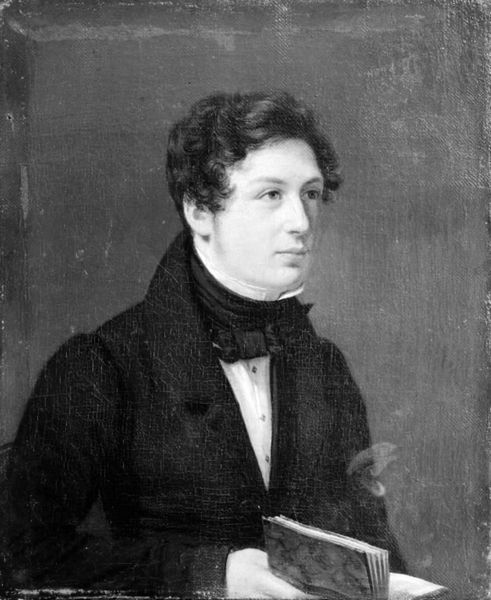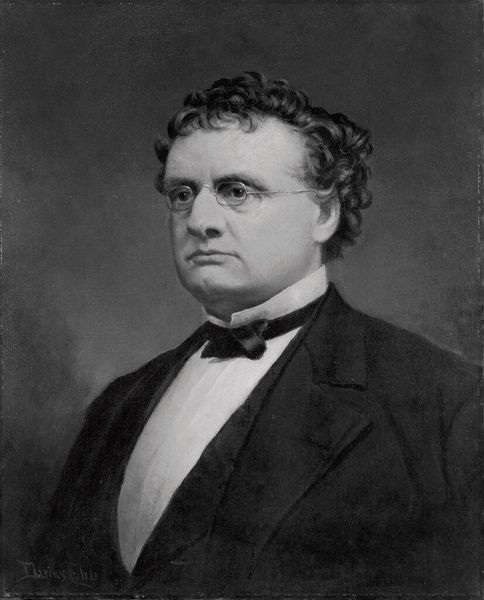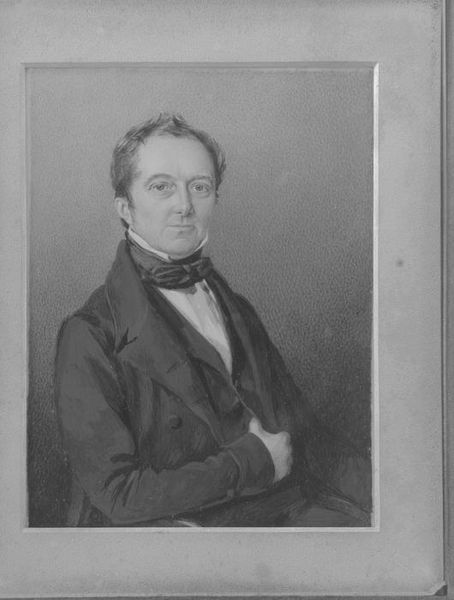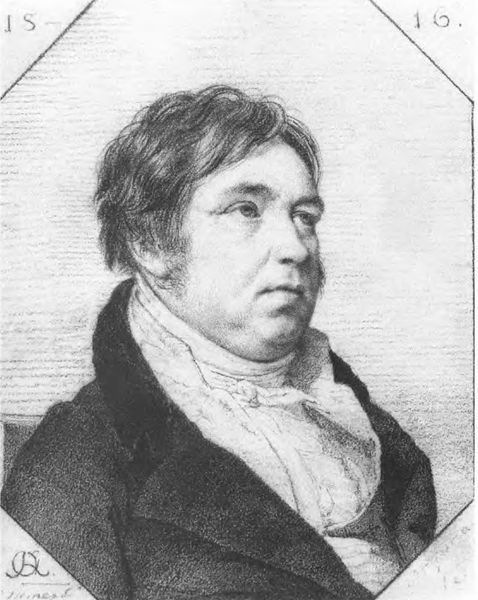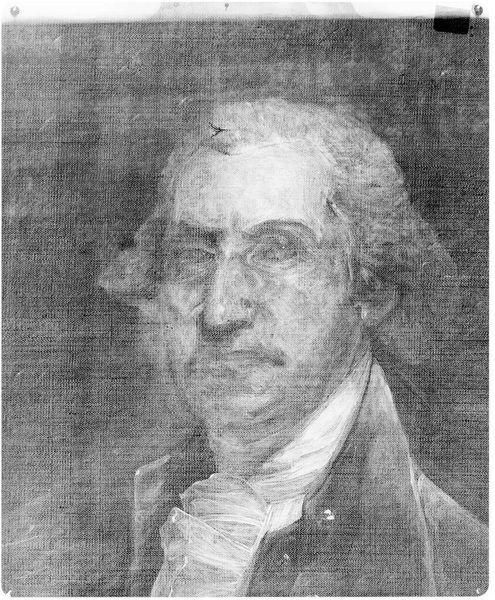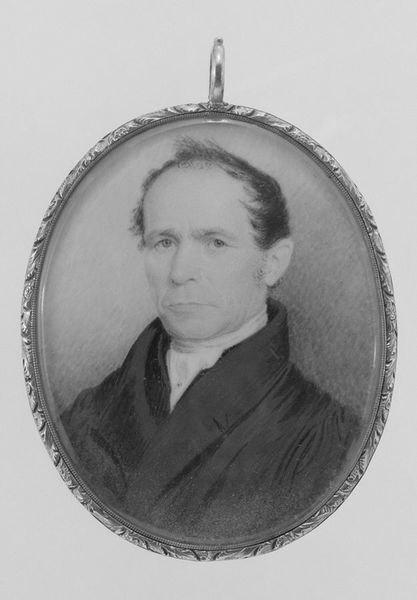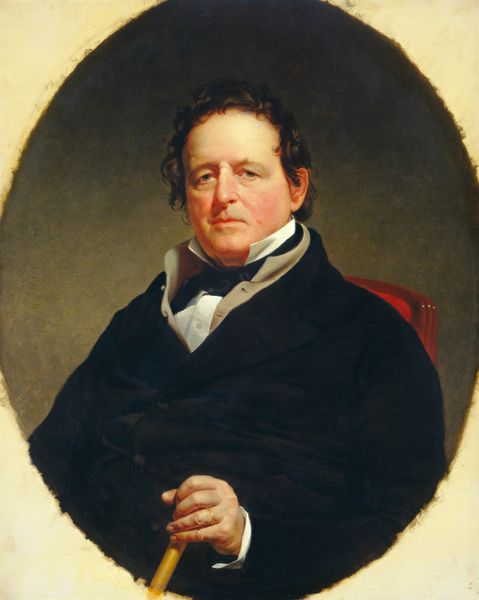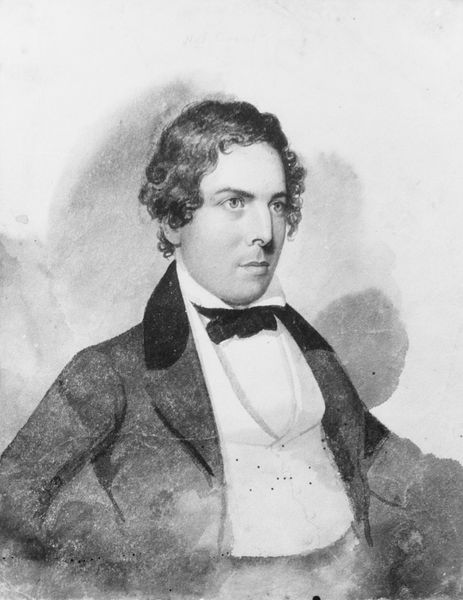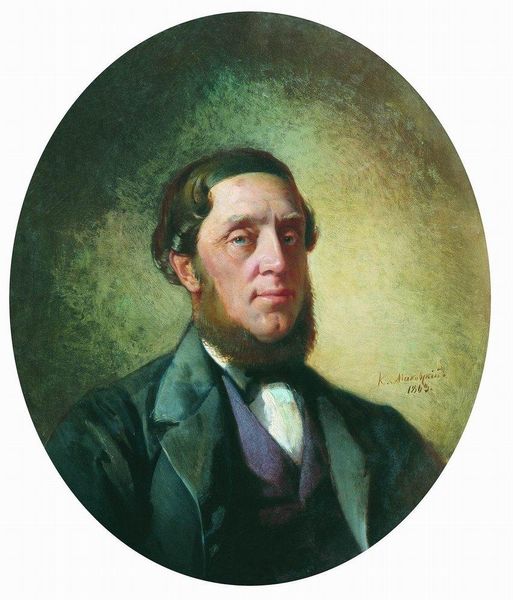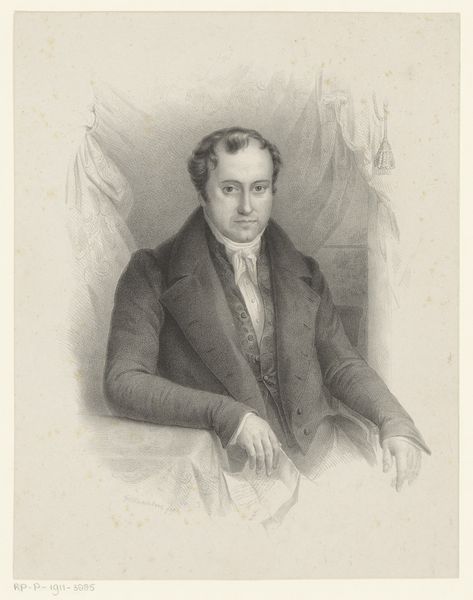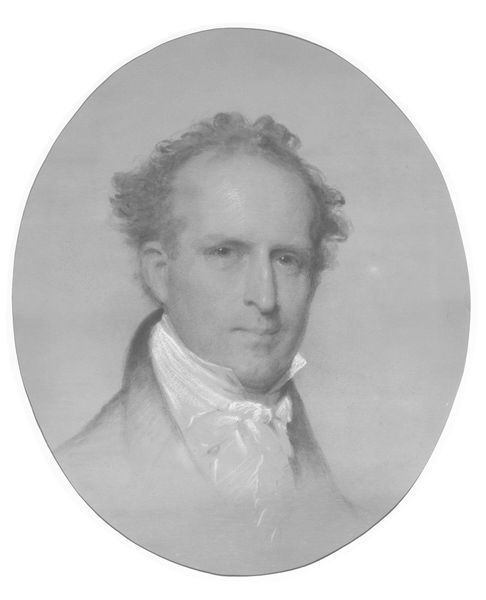
drawing, pencil, graphite
#
portrait
#
drawing
#
self-portrait
#
low key portrait
#
portrait image
#
portrait
#
portrait subject
#
male portrait
#
portrait reference
#
romanticism
#
black and white
#
pencil
#
graphite
#
portrait drawing
#
facial portrait
#
realism
#
digital portrait
Copyright: Public domain
Orest Kiprensky painted this portrait of E. Dumont in Russia, sometime in the first decades of the 19th century. Kiprensky was at the forefront of a movement to assert a specifically Russian school of art that could stand alongside those of Western Europe. Consider how this image creates meaning through visual codes, cultural references, and historical associations. The figure of Dumont is presented as a man of substance, his gaze direct, his clothing signifying status and profession. To understand this painting fully, one must explore the social and political landscape of Russia at that time. Was Kiprensky subtly challenging the established norms of portraiture? By delving into archival records, letters, and critical writings, we can uncover the complex interplay between art, society, and power. The meaning of art, then, is never fixed but evolves in relation to its ever-changing social and institutional contexts.
Comments
No comments
Be the first to comment and join the conversation on the ultimate creative platform.
